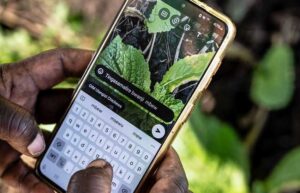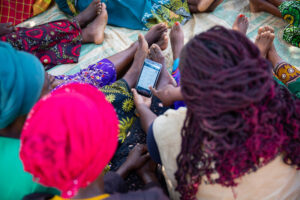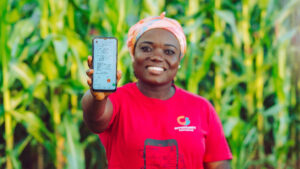Malawi’s New Tech Farm-Aid: When AI Speaks the Language of the Agro-Land
In the quiet farmlands of central Malawi, where advice once passed from grandmother to granddaughter under the shade of mango trees, a new kind of helper has joined the conversation and it speaks Chichewa, the ethnic language.
Meet Ulangizi AI, a digital farm adviser that combines ChatGPT’s intelligence with Malawian government data and generations of traditional know-how. Its name means – advice, and for farmers like Alifosina Mtseteka, it has become a lifeline.

When aphids and drought attacked Mtseteka’s okra crop, her family’s main food source, no one in her village could help. Then her daughters introduced her to Ulangizi. A neighbor spoke her problem into a phone and a calm Chichewa voice replied: use this insecticide. Days later, her crop revived. “I bought the chemicals and sprayed them, and the okra became healthy again” – says Mtseteka, who lives with her husband and grandchildren in Chisemphere village. A revolutionizing digital voice for the agro fields in Malawi.
Developed by the UK nonprofit Opportunity International, Ulangizi AI is designed for Malawi’s millions of small-scale farmers who have limited access to agricultural officers. With only one officer for every 3,000 farmers, many rural families rely on oral tradition or delayed government outreach.
The AI system fills this gap, answering voice or text questions on WhatsApp, analyzing crop photos, and even offering livestock care tips. The Ulangizi AI tech was built on ChatGPT’s architecture but trained in Chichewa. Though, it was a major challenge given how little of the language exists online.
Paul Essene, a lead officer at Opportunity International’s digital innovation, explained that – “the most effective driver of usage is on-the-ground training, using a human in the loop model”. Local field agents are designated to help farmers learn to trust the tool and interpret its advice. Connecting the dots, where tradoculture meets technology.
In a culture where knowledge has long been shared communally, Ulangizi AI is reshaping how wisdom travels. Elders who once relied on memory now consult an algorithm. Yet the transition feels less like a disruption than a partnership. “This is not replacing tradition,” – cleared by Emmanuel Kaunda, vice chancellor at Lilongwe University of Agriculture. He said – “It’s digitizing it, by giving local wisdom a louder voice”. However, the voice must keep learning. AI models require constant updates to track changing pest patterns, rainfall shifts and new diseases driven by climate change. Webbing a hub of social and family ripples.

In clusters of most families, Ulangizi is more than a chatbot, bridging between generations. Young, tech-savvy users guide their parents and grandparents through the app, strengthening bonds in communities where literacy and smartphone access are uneven.
Charities like GiveDirectly have distributed phones preloaded with the tool, transforming the humble device into a gateway for opportunity. “The phone becomes a bridge to money, information and as connection” – says Martin Kalima of GiveDirectly. Sponsoring a wider impact of this innovation.
The social implications ripple beyond the farm. Women, who make up the majority of smallholder farmers in Malawi, are gaining direct access to expert advice without waiting for government officers or male intermediaries. Politically, the project indicates a shift toward locally rooted, AI-driven governance, where policy, language and culture align through digital tools.

In a gradual progression though, Ulangizi AI is far from perfect. It occasionally misinterprets questions or offers incorrect advice and once even refused to discuss a plant called witch hazel, mistaking it for witchcraft, which should be expected atimes with techs develoment. But farmers forgive its quirks. “If it could warn us ahead of time about the rains, we’d plan better,” says Misha Katema, a field agent and farmer.
In a land where the rhythm of life still depends on the weather, Malawi’s farmers are learning that help can now come from the tech-cloud, not just the sky.






